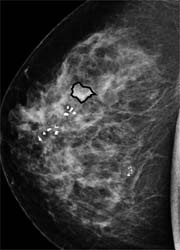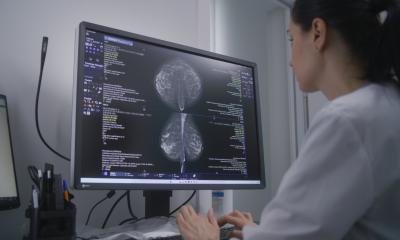Screening
It's time to examine the quality of diagnostic reporting
Switzerland - European experts presented and debates that controversial topic - breast cancer screening programmes - during a September symposium organised by Carestream Health.

Almost all EU countries have established screening programmes, which have lead to an impressive increase in early detection rates compared with those before these programmes began. The conclusion is that the breast cancer mortality rate – the most common cause of death in women – could be decreased continuously. However, the number of late detected carcinomas is still considerable.
Henny Rijken and Prof. Roland Holland, of the National Expert and Training Centre for Breast Cancer Screening, in Nijmegan University Hospital, the Netherlands, focused on the role ‘quality of diagnostic reporting’ plays in a successful screening programme. ‘The Netherlands’ screening programme is well-established nationwide,’ Henny Rijken said. ‘We now have to look behind the facts and figures of our current statistics and ask how we can improve the results. That’s why we examined the differences in the quality of diagnostic reporting. In the Netherlands, due to very strict rules and guidelines, the technical equipment everywhere is based on the same foundation. However, of course there are differences in the reporting quality – for example concerning recall rates that, in general, can be said to be low. In our opinion, one reason for missing a carcinoma at an early stage could be that the number of women invited for further examinations – which could clarify any uncertainty – is too low. This can be seen from figures coming from areas with an above average recall rate that also have above average detection rates. On the other hand, there are areas where the recall rate is equally high, but with a less optimal detection rate. In that case the knowledge and experience of the radiologist might play an important role for screening success,’ he pointed out.
The statistics presented by the Netherlands duo prompted serious discussions about ways to further improve screening quality and therefore save more lives.
30.10.2007










